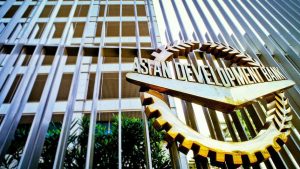We let it happen…

The 40 days of Lent will be over in the mournful stillness of this week — on Good Friday — after which comes the glorious Easter Sunday of the Resurrection of the Christ. “Cuaresma” as it is known here, a remnant of our Spanish heritage, is allegorical to the Christian repentance of sin and the cleansing of the soul to merit the supreme gift of mercy and forgiveness by the God-Man dying on the cross to redeem all who have faith in Him.
Penitent mea culpas overpower the Christian heart and soul, both in the pure and perfect sorrow of having offended the all-loving God by sinning and in the imperfect contrition of the fear of Hell and exclusion from the eternal peace and joy of Heaven. For we “believers” were there when Jesus Christ was betrayed and sold for 30 pieces of silver by Judas Iscariot to the Sanhedrin in the Garden of Gethsemane. And at His trial, the governor Pontius Pilate asked the crowd, “Whom do you want me to release for you: Barabbas, or Jesus who is called Christ?” (Matthew 27:17) We were in the crowd who chose the convict Barabbas to be pardoned, and Jesus to be crucified. We let it happen.
An estimated 92.5% of Filipinos are Christians; the major Christian denominations are as follows: Roman Catholic (80.9%), Evangelical (2.8%), and Iglesia ni Cristo (2.3%) according to a Stanford University study (Religion — Ethnogeriatrics, https://geriatrics.stanford.edu). It would be interesting to try to see how critical choices in a national election would be made by an overwhelmingly Christian electorate urged to moral and spiritual awareness by the timely liturgies of Lent in the dulling confinement of the persistent COVID-19 pandemic. National elections will be on May 9.
Redux to the national elections of Feb. 6, 1986: the dictator since Sept. 21, 1972, Ferdinand Marcos was sick, and worried about the growing political unrest because of the assassination of oppositionist, rights-fighter, and ex-senator Benigno Aquino, Jr. on Aug. 21, 1983. Marcos called for a snap election, perhaps thinking to entrench himself by a sure win. “Civil Society” put up Corazon Aquino, the slain hero’s widow, as the candidate in opposition to Marcos. “Whom do you choose: me, or Aquino?” Marcos asked the crowd like Pilate offered Barabbas or Jesus. The “crowd” rejected the evidently tampered election results that said Marcos had won, and ousted Marcos by the bloodless People Power Revolution, EDSA I, on Feb. 25, 1986. Corazon “Cory” Aquino was immediately installed as President.
President Cory released Executive Order 1 creating the Presidential Commission on Good Government (PCGG), with Jovito Salonga as chair, to recover all assets and moneys amassed by the Marcoses, relatives, and cronies.
“Estimates of the amount the Marcoses reportedly acquired in the last few years of the Marcos administration range from $5 billion to $13 billion. No exact figures can be determined for the amount acquired through the entire 21 years of the Marcos regime. But prominent Marcos-era economist Jesus Estanislao has suggested that the amount could go up to as high as $30 billion” (1978–1989: From Roarings in the Middle East to the Destroying of the Democratic Movement in China, Heinz-Dietrich Fischer, ed., Jan. 20, 2020). “Among the sources of the Marcos wealth are alleged to be diverted foreign economic aid, US Government military aid (including huge discretionary funds at Marcos’ disposal as a ‘reward’ for sending some Filipino troops to Vietnam) and kickbacks from public works contracts over a 2-decades-long rule” (ABS-CBN News, July 9, 2019).
As of yearend 2020, the PCGG reported a total cumulative recovery of P174 billion ($3.48 billion at P50/$1) of the Marcos ill-gotten wealth (“PCGG Year End Accomplishment Report FY 2020” [PDF]. PCGG Website). A Rappler analysis suggests that “as of 2021, 35 years since the people power revolution, the PCGG is running after P125.9 billion more in ill-gotten wealth from the Marcos family, who are back in power both in local and national politics (Rappler, Sept. 29, 2021). No one really knows how much more there is to recover, or what can be identified, because of the intricate web of dummy cronies and fictitious bank account names, or SPA-managed Swiss bank accounts. Evidence is insufficient in many instances, and further recovery is stumped. And there is the unspoken possibility of temptations for the recovery teams.
President Cory signed Republic Act 7080, or the Anti-Plunder Law, in 1991. Of course, the heinous crime of plunder could not be made retroactive to apply to Ferdinand Marcos and his family/cronies. After the abolition of the death penalty in 2006 through Republic Act 9346, the death sentence for plunder was downgraded to reclusion perpetua (life imprisonment), forfeiture of ill-gotten wealth in favor of the government, and perpetual disqualification from public office.
The first elective officials to be charged with plunder were former President Joseph Ejercito Estrada (three months after he left office) and his son Jinggoy Estrada (then Mayor of San Juan but not immune from suits like an incumbent president). After six years detention, on Sept. 12, 2007, Estrada was found guilty of plunder, and sentenced to life in prison. His son Jinggoy and lawyer Edward Serapio were acquitted. On Oct. 26, 2007, however, Erap Estrada secured a pardon from then-president Gloria Macapagal-Arroyo (Rappler, June 21, 2014). Was the ill-gotten wealth returned?
July 16, 2012 — Arroyo herself became the second former president to be charged with plunder. The Office of the Ombudsman filed a P366-million ($8.7-million) plunder case against Arroyo, seven Philippine Charity Sweepstakes Office (PCSO) officials, and two Commission on Audit officials over alleged misuse of PCSO intelligence funds. In October 2013, another plunder complaint was filed against Arroyo, this time over the misuse of the discretionary Malampaya fund. Included in the charge sheet were alleged pork barrel scam mastermind Janet Lim Napoles, political liaison Ruby Tuason, and many others. The accused have yet to be indicted in connection with Malampaya. On July 19, 2016, the Supreme Court, voting 11-4 ruled to acquit Arroyo (chronology from Rappler, July 19, 2016). Arroyo, while accused, had undisturbedly served her maximum three terms as Pampanga representative — in detention. Of course, no ill-gotten wealth was returned, because none was proven.
Knowing the Sisyphean efforts of our country to recover the Marcos ill-gotten wealth, and then seeing how easily two former presidents “got away” with plunder, Filipinos must be beating their chests with mea culpas in this penitent Holy Week of Lent. We let these things happen.
But maybe there is less contrition than there should be for allowing certain officials to lead our country. Ferdinand “Bongbong” Romualdez Marcos, Jr. is running for President of the Republic of the Philippines, and he is consistently the No. 1 winnable candidate in election surveys of the lead survey companies Social Weather Station (SWS) and Pulse Asia.
“The sins of the father are not the sins of the son,” Bongbong’s supporters say. But Marcos Jr. (as co-administrator of the Marcos estate) has not paid some P203 billion in estate taxes due on what the family inherited from their father! It is all so confused — what inheritance, if the ill-gotten wealth is constantly denied by the Marcos family? Yes, it all goes back to the Marcos ill-gotten wealth. And it goes further back to why we Filipinos had the EDSA People Power Revolution in 1986 — when we stood for our rights and moral principles against the dictator.
The PCGG said the Bureau of Internal Revenue “already executed its final assessment” on the involved properties as early as 1993 and that “as early as 1997, the judgment on the tax case had become final and executory” (https://newsinfo.inquirer.net/, March 31, 2022).
“The P328 billion worth of ‘ill-gotten’ wealth and unpaid taxes from the Marcos family may no longer be recovered if former Senator Ferdinand ‘Bongbong’ Marcos, Jr. gets elected as president… if you’re president you must be the model for the nation” retired Supreme Court Associate Justice Antonio Carpio said. (https://newsinfo.inquirer.net, Jan. 13, 2022).
Will we let it happen?
The May 9 elections will be a test of the Filipinos’ moral, ethical and spiritual values and principles. Whom will we choose?
Amelia H. C. Ylagan is a doctor of Business Administration from the University of the Philippines.




